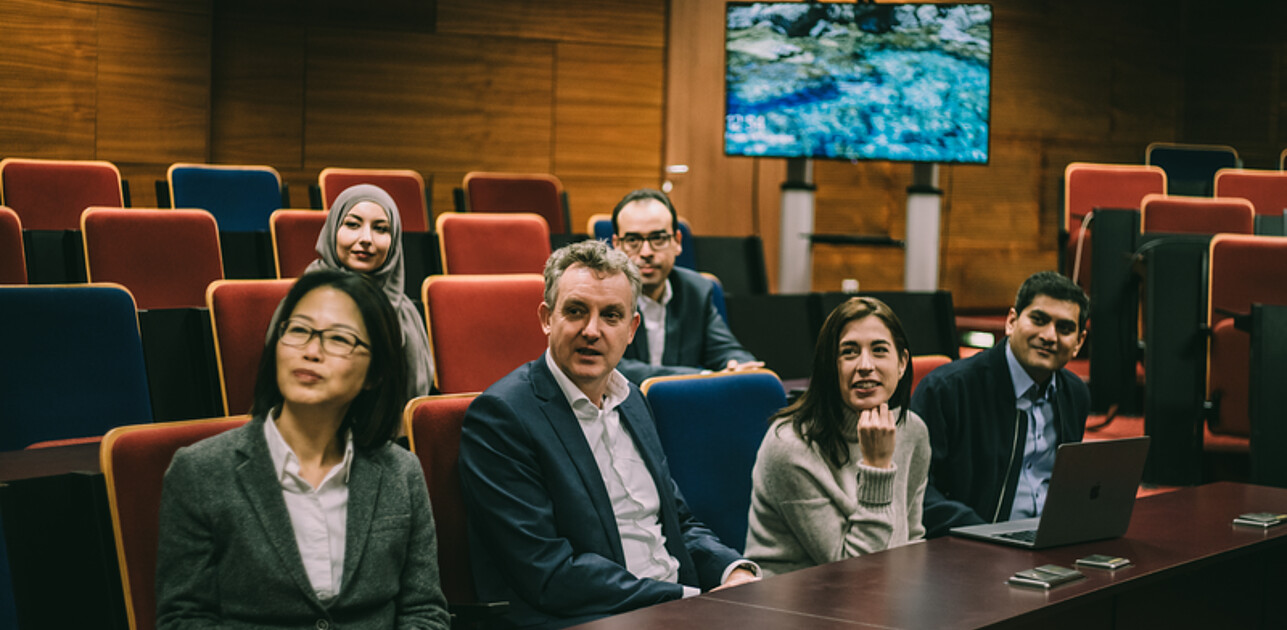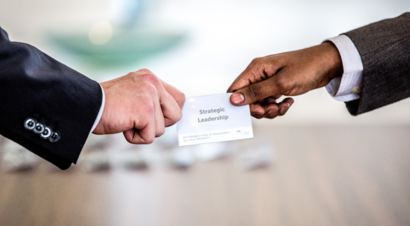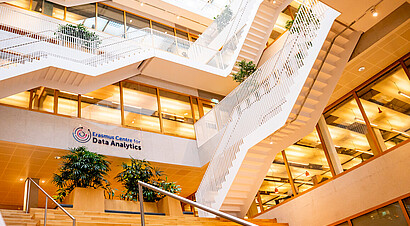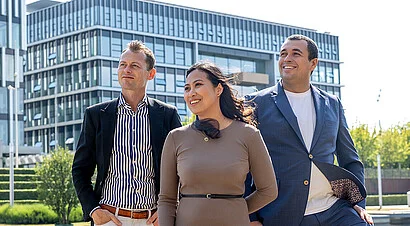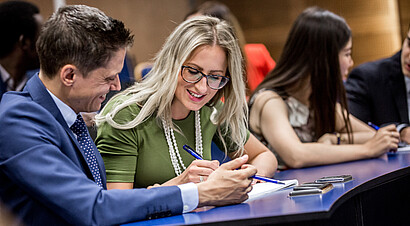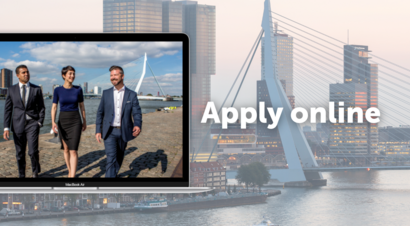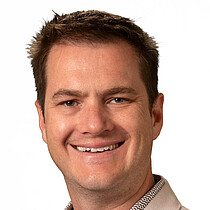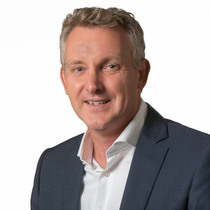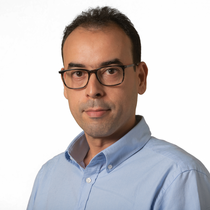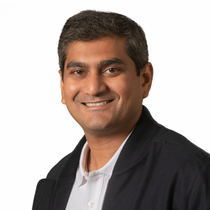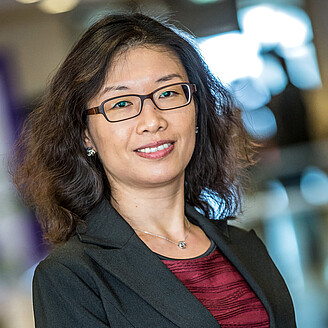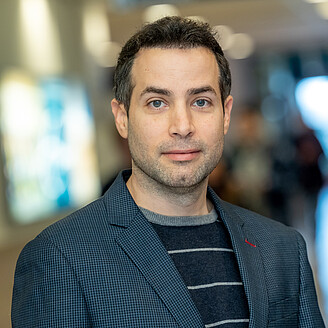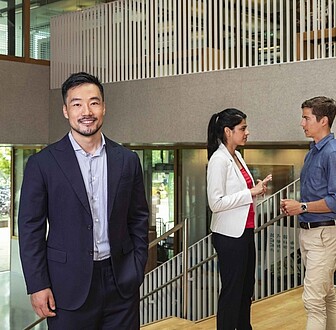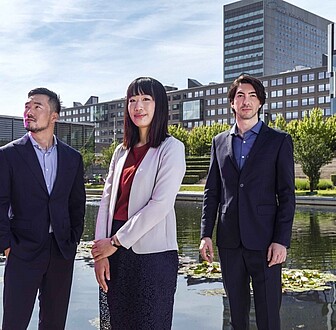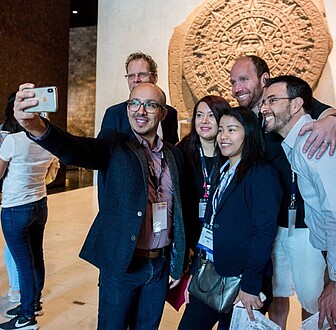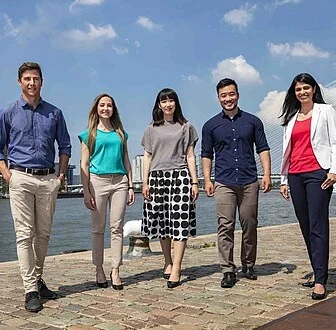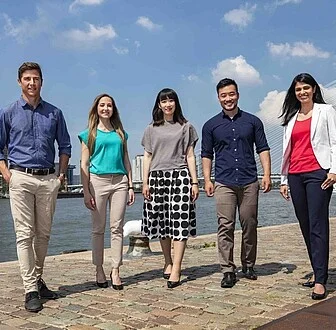Meet our students
Meet current and previous International GEMBA students.
Why this programme
Select the play button to start the video.
Class profile
To view the full class profile of Global Executive MBA Class of 2025, please click here.
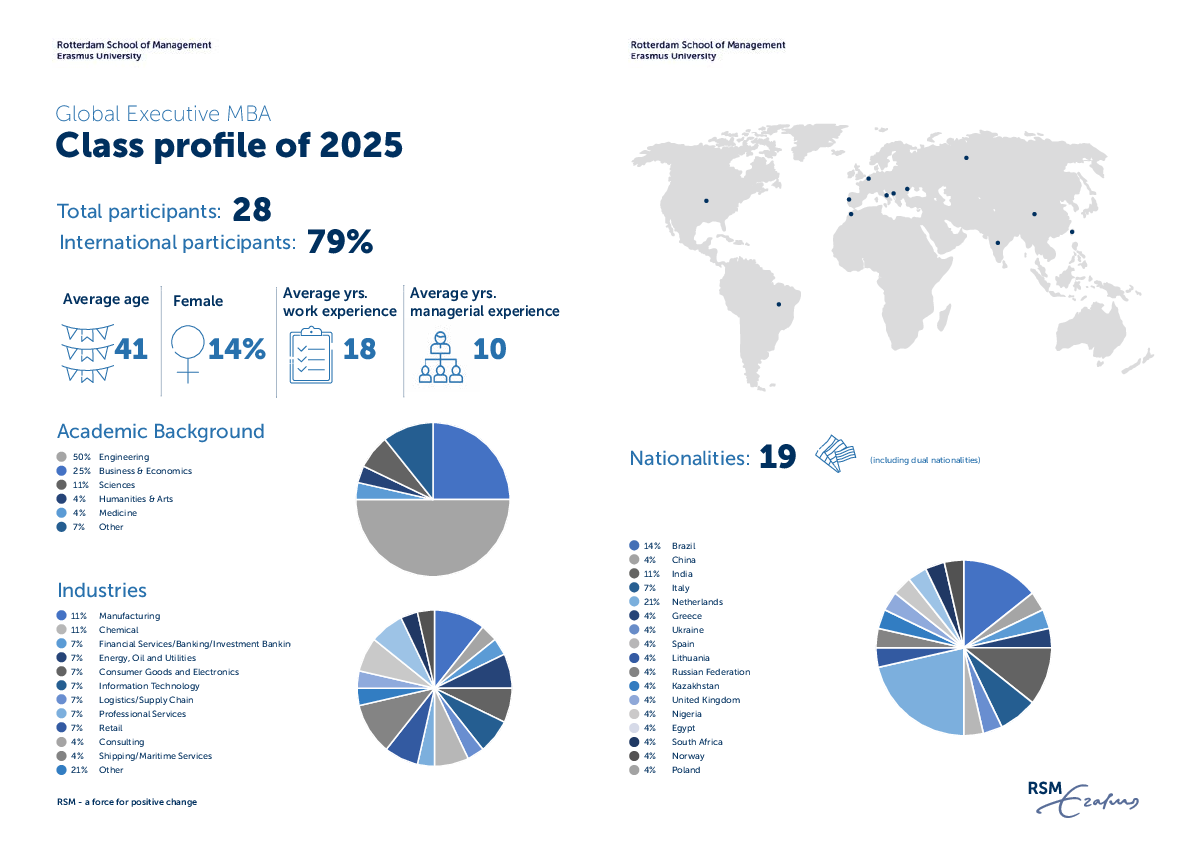
Curriculum
Complete your Global Executive MBA (GEMBA) over 21 transformative months. To help you develop as a Strategic leader our GEMBA programme offers you a highly personalised educational experience.
It includes a self-assessment of your development needs, (team) leadership challenge, personalised strategic leadership development plan, data-driven monitoring of your progress, one-to-one coaching, a choice of 3 electives and more.
Personal Leadership Development is interwoven throughout your Global Executive MBA experience. The Strategic Leadership Development track focuses on the development of the competencies that managers will need to bring to the table to successfully serve as a strategic leader. These skills and attitudes comprise a both personal leadership (PL) and strategic leadership (SL) component.
Because of its flexible, modular format, you will be able to experiment with new approaches learnt on campus back at the workplace as you progress.
You can view the GEMBA calendar to find out it this programme is a fit, please click here.
Global Experiential Learning courses (GEL)
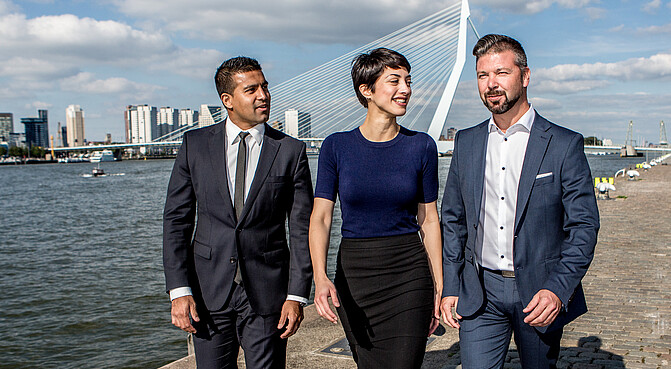
Strategic Leadership Development (SLD)
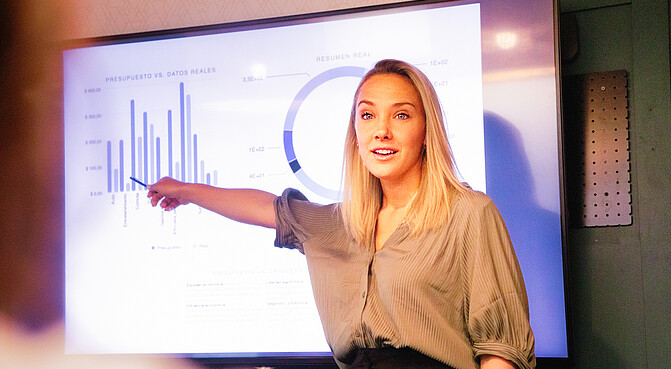
Module 1 (September - February)
- Strategic Leadership Development track (10 EC)
- Global Marketing Management (4 EC)
- This course integrates psychological and economic theories used in traditional marketing strategy with new insights and techniques based in data science to offer substantial efficiency in marketing endeavours. We will discuss the implications of big-data and the evolving internet economy on traditional durable goods as well as newly emerging product domains. Additionally, given the exceedingly interconnected world, we will discuss the social, environmental, and ethical implications of marketing in this new era.
- Managerial Decision Analysis (3 EC)
- Complexity in decision making comes from many factors. This course focuses on the difficulties arising from quantitative decision making in an environment with uncertainty and risk and presents different methodologies to deal with them in real-life problems. The course exposes you to common decision-making pitfalls and discusses how decision making is likely to change over the next decades due to the rise of Artificial Intelligence.
- Global Operations Management (4 EC)
- This course will introduce you to concepts and techniques that are essential for the design, planning, control and improvement of global service and manufacturing operations. You will explore topics such as capacity, inventory and supply chain management and learn basic tools for analysing operations problems, methods for managing an aspect of operations in a real situation, as well as providing a strategic view, typically using cases, of that aspect of operations.
- Topics in Global Business and Management (1 EC)
- The rapid changes in global business and society mean that new perspectives are needed to prepare strategic leaders for an uncertain future. This course will not only invite top-level executives, experts, and faculty to help you to envisage and understand which global mega-trends may be coming our way, but will also offer an introduction to some practical tools (such as scenario-analysis, for example) to help strategic leaders to navigate an uncertain future.
- Global Experiential Learning: Leading Digital Transformation & Study visit (3 EC)
Module 2 (March - July)
- Strategic Leadership Development track (continued)
- Strategy in a Global Arena (4 EC)
- Strategic management is concerned with what is perhaps the most pressing issue for strategic leaders: how can I make my firm outperform its competitors? To formulate value-creating strategies, managers must identify core competencies, analyse industry environments, and develop new ways of outcompeting their rivals. The overall aim of this course is to help you to think like a strategist and contribute to C-suite level strategic decision-making.
- Financial Accounting and Analysis (3 EC)
- This course provides a common language and a toolbox to make rational decisions that involve monetary value. Understanding this subject matter will make you a more professional manager. Moreover, understanding the limitations of financial analysis and accounting will enable you to challenge management plans more effectively. This course gives you the foundational knowledge that any C-suite member needs to use and evaluate financial information and contribute to discussions and decision-making with respect to finance and accounting.
- Leading and Managing Global Organizations (4 EC)
- Managing people and organisational development is a mission critical C-suite competency that no business can afford to do without. Managers of globally active businesses need to continuously readjust their organisations to volatile or uncertain environments; navigate international and culturally highly diverse contexts; develop and engage with a competitive workforce based on the business’ value proposition; and engage in informed decision-making using evolving techniques such as people analytics, big data, and artificial intelligence. In sum, leading and managing a globally active organisation at a C-suite level requires specific knowledge, skills and attitudes. This course seeks to hone and develop these skills, so you can develop and lead organisations with purpose.
- Topics in Global Business and Management (continued)
- Global Experiential Learning: Leading Entrepreneurship and Venturing & Study visit (3 EC)
Module 3 (August - March)
- Strategic Leadership Development track (continued)
- Elective 1 (3 EC)
- Elective 2 (3 EC)
- Elective 3 (3 EC)
- Topics in Global Business and Management (continued)
- Corporate Governance (3 EC)
-
Corporate governance is about getting “the rules of the game” right within which firms can secure resources, develop their core activities and business models, secure their societal licence to operate, and create and capture value for their shareholders and stakeholders. Rather than presenting an optimal corporate governance set-up that suits all firms, we will discuss the ownership and governance choices ofthe firm as a matter of strategic design and decision-making.
-
- Corporate Finance in a Global Environment (4 EC)
-
Visionary business leaders of the future need a toolbox that helps them to tackle some tough strategic decisions. In this course, we discuss some of the toughest financial decisions senior managers may have to take, such as: What is the best capital structure for my company? Should I diversify my company or should I focus, and what is the impact on my corporate cost of capital? What are the financial pros and cons of having a stock market listing versus being privately held? Given your company has a stock market listing, what can you do to improve the stock’s liquidity? How do you redistribute the net profits of your corporation?
-
- Global Experiential Learning: Leading Corporate Strategy and Development & Study visit (3 EC)
Module 4 (April - June)
- Strategic Leadership Development track (continued)
- Economics for Global Business Managers (3 EC)
- This course seeks to enable you to apply foundational concepts and insights from micro- and macro-economics to analyze some of the most relevant trends and issues in global businesses today. Specifically, this course will discuss concepts such as incentives and behavior, market power and market structures, asymmetric information, vertical integration, and outsourcing, for example, to analyze phenomena such as the international fragmentation in trade and FDI, economic crises and contagion, the role of multinationals in global business, regulation, trade agreements, as well as other current phenomena that are important for strategic leaders in global business.
- Global Experiential Learning: Leading with Impact in Emerging and Developing Economics & Study visit South Africa (3 EC)
Electives
Choose 3 electives from a selection of programme- and school offerings that will help you to customise the knowledge and skills development that you need or desire to develop further. Here are some examples of elective courses on offer.
- Change management/strategic business change leadership
- Managing corporate turnarounds
- Mergers and acquisitions
- Business negotiations
- Financial engineering
- Brand management
Faculty
World-class thought leadership on global business.
Our faculty are leading thinkers, researchers and practitioners of global business. Their research is published by top academic journals, and their expertise is regularly sought by the Financial Times, Harvard Business Review and a host of leading newspapers and media outlets. RSM professors investigate the most pressing and relevant dimensions of global management, and their thought leadership informs the decisions of C-suites and boards of some of the world’s leading business organisations.
Global scholars
RSM faculty research the most critical issues facing businesses around the world. From innovation to entrepreneurship to supply management and beyond, they shed critical new light on the challenges our organisations face in uncertain times. The Erasmus Research Institute of Management is ranked among Europe’s top three think tanks. Joining the EMBA programme at RSM will give you the opportunity to interact with world-class scholars on the critical issues that face your business and your leadership.
Industry leaders
No one understands today’s business climate better than those who actually navigate it every day — the leaders of industry and government. At RSM, you’ll get their expert perspectives first-hand, learning from big-name professionals who share invaluable insights about the real world, directly with you and your peers.
At RSM, we are porud to claim:
Faculty Members
FAQ
Do you have any questions about our Global Executive MBA (GEMBA) programme? Find answers to commonly asked questions in our FAQ section, covering programme structure, faculty, admissions, and more.
1. What is the difference between Global Executive MBA (GEMBA), Executive MBA (EMBA) and Full-time MBA (FTMBA)?
The main difference between the GEMBA, EMBA, FTMBA programmes lies in the career stage of the participants. FTMBA typically caters to early-stage professionals seeking significant changes in geography, industry, or function. In contrast, EMBA targets mid-career professionals aiming for career acceleration, while GEMBA is designed for senior-level executives, including those on the brink of joining executive boards. This difference in career stage is reflected in the programme's approach to learning. FTMBA often poses hypothetical scenarios for discussion, EMBA deals with real-time challenges professionals are facing, and GEMBA focuses on reflecting on past decisions in light of actual experiences. Furthermore, as participants progress through the programmes, courses delve deeper into various managerial issues and challenges, aligning with the increasing expertise and maturity of the cohort.
2. Who are the students doing a Global Executive MBA?
There are different characteristics to the kind of students that are doing a GEMBA. To have a better understanding of the class profile, please click here.
3. What is the ranking for the GEMBA?
The GEMBA programme doesn't have an official ranking yet because it's relatively new. However, with this year (2024) marking its third consecutive successful run, the programme becomes eligible for ranking. It's worth noting that RSM’s Full-Time MBA is currently ranked 61 globally, and the GEMBA programme shares the same faculty and environment.
4. How will I determine which MBA programme aligns best with my aspirations and work experience? Should I consider FTMBA, EMBA, or GEMBA?
The existence of three different MBA programmes is primarily driven by the tools, knowledge, and attitude (TKA) required for your current and future roles. Your TKA needs often vary at early, mid, and senior levels. Therefore, we provide you with the appropriate TKA tailored to your current and near-future circumstances.
To make your choice clearer, consider the following guidelines:
- If you’re in the early stages of your career, say between 3 to 5 years, then consider inquiring about the FTMBA.
- If you're at a mid-career stage, around 5 to 8 years of experience, and you're aiming for or already in a junior managerial role at an operational level, the EMBA is likely the best fit for you.
- If you're at or beyond the senior-career stage with 10 years or more of experience, and your background includes senior managerial responsibilities or you're about to delve into strategic decision-making, then the GEMBA programme is probably your ideal choice.
In any case, reach out to us if you are not clear about your choices, we will gladly help you determine the best possible match.
5. What does a GEMBA class look like? Can I attend a class?
A GEMBA class is inherently composed of senior individuals. Usually international and intimate, with around 25 – 30 students often including senior decision-makers. Discussions in this setting are primarily centered around broadening leadership, strategic, and global perspectives. Additionally, a GEMBA class is characterised by inspiration, non-technical, highly structured, and a focus on investigating concepts and their practical application. Rather than dwelling on theory endlessly, the emphasis is on understanding and discovering practical applications for the topics discussed.
It's advisable to attend a GEMBA class after completing a preliminary qualification or CV assessment and having a consultation session with the Admissions & Recruitment Manager. This ensures that both parties are confident that you will benefit from attending the class. Reach out to rmaduro@rsm.nl to have a conversation about this.
To access the complete list of Frequently Asked Questions, please click here.
